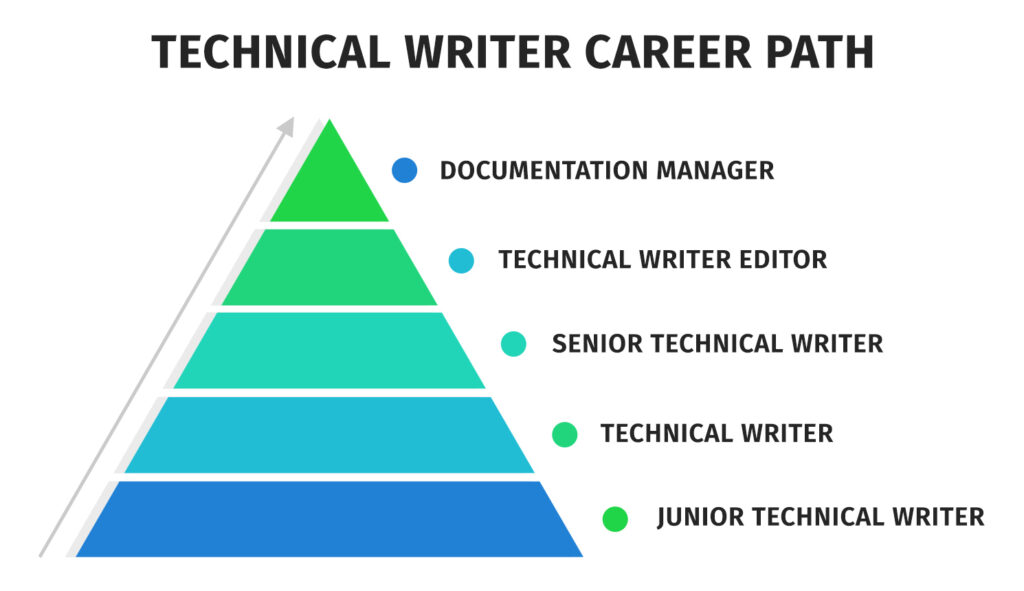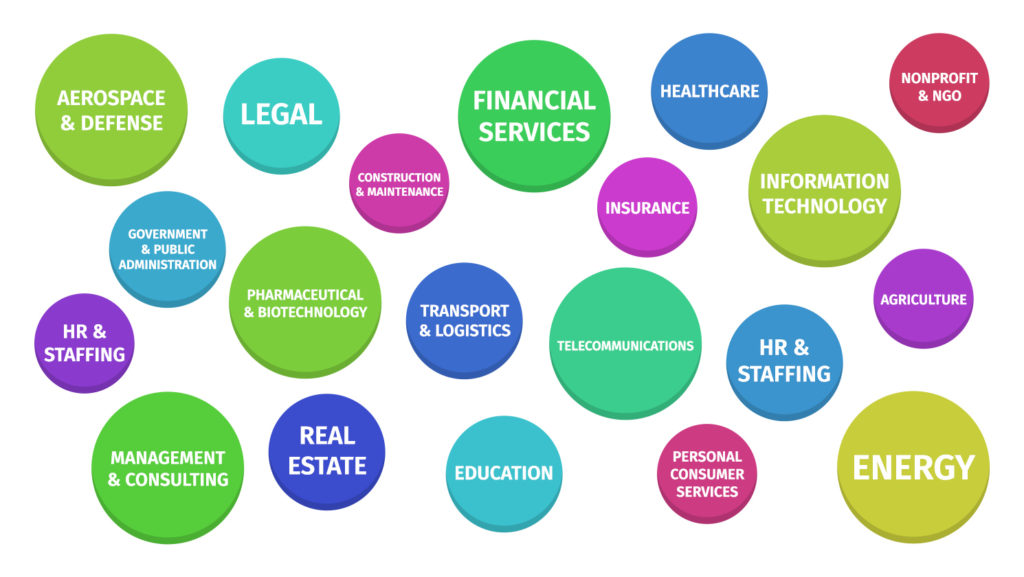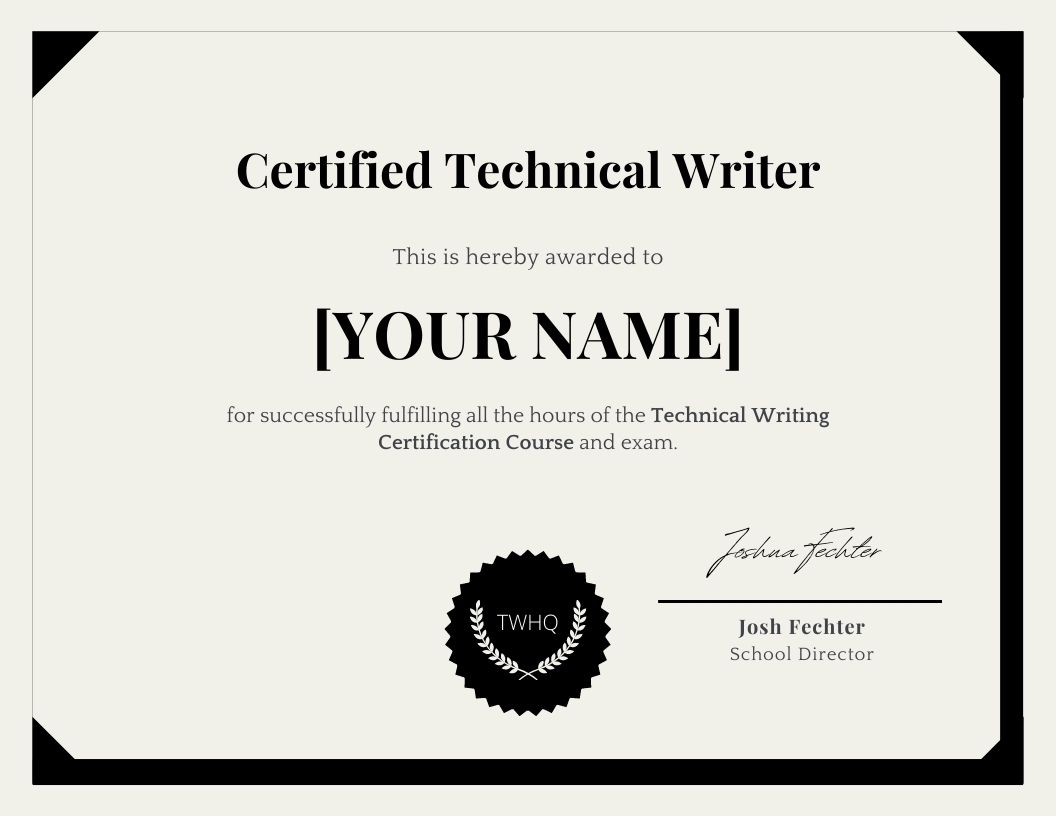Technical writing is an excellent opportunity to write and earn, but only if you can keep the required skills up to date. As the world evolves, so does the technical writing industry.
If you are a technical writer, stay updated with terms and regulations.
Here’s a rundown of the technical writing career path.
What is the Technical Writer Career Path?
Technical writer transition depends on the writer’s experience.
Shifting from a different field to technical writing can be tricky and thus requires more effort and struggle for beginners to master. But what is the career path for technical writers?
If you’re interested in learning via video, watch the video below. Otherwise, skip ahead, or check our article on how to become a technical writer without experience.
No specific college degree or certification is required, and you can join the community of tech writers based on your writing skills. However, it is recommended that you take online courses and stay updated with technical writing knowledge to gain more experience.
Technical Writer HQ offers multiple technical writing certificates that will help you nourish your technical writing skills.
If you want to gain more exposure, join the writing internship opportunities in engineering and IT. Such fields require more technical knowledge, and you can cherish your skills.
According to Glassdoor, technical writers earn $78k-133k annually in the US. The employment rate is also expected to rise by 200% by 2029. Hence, you can earn a good salary by joining the technical writing industry.
What Does a Technical Writer’s Career Path Look Like?
We have already covered who technical writers are, and what industries are the most demanded in the sections below, now let’s see what the technical writers’ career path looks like. Here are some of the detailed career choices you can have as a technical writer:
Junior Technical Writer
The junior technical writer supports and assists the team in finding the source materials and files for documentation. Junior technical writers also ensure the correct usage of pre-defined guidelines for the documentation process.
They also gather complex and technical information later used in documentation. They also write grant proposals. Here are mentioned some in-depth work duties for entry-level technical writers:
Job Responsibilities
- Update the already written technical content
- Collaborate with the documentation team to draft readable technical content
- Review the analytics and suggest relevant edits to technical writers’ work
- Embed the user feedback in an appropriate way
- Edit the user guides to improve voice tone for the readers
- Suggest methodologies and revamp the existing content
Preferred Qualifications
- Bachelor’s degree in Computer Science or the relevant technical field
- 0-2 years of technical writing experience
- Excellent communications skills
- Excellent project management and technical skills
- Familiar with quality assurance reviews and documentation guidelines
- Skillful in using analytics tools
- Great at incorporating feedback into the work
Technical Writer
Technical writers develop internal and external organizational documents for company employees and consumers. These documents usually include white papers, press releases, user manuals/guides, technical reviews, how-to manuals, and technical tutorials.
Job Responsibilities
The primary job responsibilities of technical writers are mentioned below:
- Works with multiple departments to understand an ongoing project
- Research (especially in technical research companies), draft, edit, and write new project content
- Communicate with project developers and experts to gather required data
- Use the gathered information in writing project specifications, documentation, and how-to guides
- Recommend better solutions for the data compilation
- Formulate the prepared guides and documents in multiple ways to have their maximum utilization and usability
Preferred Qualifications
- Minimum bachelor’s degree in the most pertinent technical field
- 1-2 years of proven technical background
- Capable to learn and adapt to a complex working environment
- Technical documentation writing skills
- Written and verbal English skills
- Technical communication skills
- Detail-oriented

Senior Technical Writer
A senior technical writer knows how to manage a team of technical writers. Their duties involve writing the buying guides, detailed scripts, technical support documentation, and training junior staff to maximize work efficiency. Here are the work responsibilities of a senior tech writer:
Job Responsibilities
- Comprehend complex topics and transform them into a user-readable and structured document
- Collaborate with inter-department stakeholders and technical staff
- Exhibit leadership and collaborative traits as a senior
- Advise junior writers to have maximum workforce efficiency
- Create online worksheets
- Stay in touch with the development team for the documentation
- Update the team with feedback and reviews received from technical specialists
Preferred Qualifications
- Bachelor’s degree in a relevant technical subject
- 4-6 years of proven experience as a technical writer
- Proficient to manage the junior team
- Exhibits Great leadership qualities
- Skillful in more complex projects
- Extensive technical communication skills
You can also check our article on senior technical writer job descriptions.
Technical Writer Editor
A technical writer-editor edits, proofreads, revises, and updates technical documentation. The technical editor also ensures the correct use of grammar, punctuation, and technical writing rules and the correct use of format throughout the document. A tech editor also has experience handling complex information.
Here is a list of primary responsibilities for a technical writer-editor:
Job Responsibilities
- Work with senior/junior technical writer team to ensure precision
- Suggest insightful edits
- Review and fact-check the drafted documentation content
- Draft easy-to-work templates and guidelines for writers
- Conduct quality assurance tests on the complex information in technical guidelines
Preferred Qualifications
- Bachelor’s in Journalism, English, or relevant technical field
- Proven technical writing experience
- Carries in-depth information on technicalities and documentation guidelines
- Strong at editing, reviewing, re-writing, beta-reading, and formating
- Skillful to comprehend complex technical information
- Finalizes the written content for the publication
Documentation Manager
A documentation manager manages and verifies the availability of the technical supporting documents. They also supervise external and internal audits. A documentation specialist coordinates with the organizational legal staff to draft disclosures and contract agreement documents. Below are mentioned the responsibilities of a documentation manager:
Job Responsibilities
- Coordinate with the technology sector to efficiently manage the handling of technical documents, markups, guides, and SOPs
- Manage the software files and documents and make them accessible for technical support staff
- Handle the entry and audit of packages and help transmit them to owners, subcontractors, and technical communicators
- Review the documentation to ensure precision and work efficiency
Preferred Qualifications
- Bachelor/master’s degree in library sciences or relevant field
- Prior experience in the management sector
- Experienced in document management software
- Strong technical communication and verbal skills
- Goal-oriented and responsible person
- Easily grasps technical knowledge
- Better Inspection abilities
- Excellent web and social media research skills
Is Technical Writing a Good Career Path?
Tech writing is rewarding in terms of finance and career. As a technical writer, you have better work flexibility, meaning you can become a contractor, freelancer, or businessman. According to a report, the recruitment rate for technical writer jobs will increase by 12% in the next ten years.
Hence, the technical writer job is a great career choice. If you are willing to become a technical writer but still confused about it as a good career choice, you can evaluate it based on your interests, skills, goals, and the extent to which this field will allow you to nourish your expertise.
This strategy will help you better decide on a technical writing career.
What Industries Need Technical Writers?

Technical writers are found in almost all industries, but their work is not highlighted to consumers. Consider a scenario: You purchase a new tool but are having difficulty using it. You will look for an instruction guide that elaborates on the process of using the tool.
These user guides serve as a ‘communication bridge’ between you and the manufacturing company. Technical writers are responsible for developing them.
If you have the necessary skills as a technical writer, you can work in any industry of your interest. Here are the major industries with a high employment rate for technical writers. You can also find here the details of technical writers’ jobs in those industries:
Information Technology
IT is one of the biggest industries, and technical writers have a high employment rate. Software Documentation Writer is the most common job post for technical writers in the IT industry. Software documentation writers help design the policies and legal documents for the software. They are also responsible for writing knowledge-based guides, journal articles, and FAQs.
The must-have requirement for you to become a software documentation writer is to have programming and software development skills. This means that even if you don’t have a software engineering degree or a programmer’s degree but have the aforementioned skills, you can secure the technical writer’s seat.
Medicine
The medicine and pharmacy industries have a high demand for technical writers. Medical Writer is the most common job post for technical writers in these industries. A medical writer writes medical equipment guides, pharmaceutical user guides, white papers, instruction manuals, and medical software documentation.
Medical writing focuses on the consumer’s readability and comprehension of the written guide. Medical technical writing should be better readability so that it is easier for the consumer to follow the instructions and precautions.
Although an MBBS degree is not mandatory, it is preferred, along with prior knowledge of medication standards, warnings, and pharmaceutical precautions, for a technical writer’s seat in this industry.
Manufacturing
Engineers are good at manufacturing innovative machines and tools but are not considered professionals when writing user guides. This is why the engineering and manufacturing sectors have high recruitment rates for technical writers.
A manufacturing writer prepares user instruction manuals, machine tutorials, and manufacturing guides. These manuals help employees and consumers understand technical processes.
Government
Government authorities hire technical writers to draft administrative guidance papers, policy documents, laws and regulations, Senate documents, and inspection reports. As these technical documents are exposed to the public, the main writing focus is user readability and comprehension.
Cybersecurity/Contract Technical Writer is the most common job post in the government industry. The job description is to write user security guides and contract documentation. Hence it is preferred to have a degree in Journals and the required expertise to secure a government technical writer’s seat.
Insurance
A college degree in finance can help you secure a technical writer’s job post in the insurance industry. Insurance companies have separate departments for technical writers. The job description of a technical writer involves drafting compliance forms and insurance agreements. It is recommended that you obtain a compliance certificate that can show your skills. Knowing the insurance company’s laws, rules, and regulations is also preferred to secure a job in the insurance industry.
One of the major Insurance companies’ technical writer job posts is Insurance Documentation Writer. The hiring manager recruits candidates who can fill the required skills and expertise, but it is good to have certificates and awards that make you stand out from the crowd.
Summary
A tech writer’s main job is to prepare instruction manuals, guides, and tutorials to disseminate technical information to consumers. Technical writing jobs are not confined to one industry but are spread across various sectors with different backdrops.
No matter your educational background, if you want to join technical writing and possess the necessary skills, you can always try it and see if it works best for you.
Technical writing is rewarding, and its demand will increase as technology progresses.
FAQs
Here are the most frequently asked questions about the technical writer career path.
What qualifications and skills are necessary for a professional technical writer?
Specific qualifications and skills are necessary to embark on a career as a technical writer. A bachelor’s degree in English, Communications, Journalism, or a technical field related to the industry of interest (such as Engineering or Computer Science) provides a solid foundation. Proficiency in writing clear, concise, and grammatically correct content is crucial. Technical writers must also possess strong research skills to understand and convey complex information.
Familiarity with technical writing software and tools, such as Adobe FrameMaker, MadCap Flare, or Microsoft Visio, is beneficial. Additionally, working in a team environment, often with subject matter experts and other stakeholders, is vital for success in this field.
How can someone gain experience and build a portfolio in technical writing?
Gaining practical experience and building a portfolio are critical steps for anyone looking to establish a career in technical writing. Aspiring technical writers can start by taking on internships or entry-level positions in technical communication. Freelancing is another viable option, offering opportunities to work on various projects and with different technologies, which can enrich one’s portfolio. Participating in workshops or courses on technical writing and related software can also be helpful.
Building a solid portfolio should focus on showcasing skills, including writing samples, documentation projects, and any technical manuals or guides created. This portfolio will be instrumental in demonstrating your capabilities to potential employers.
What are the career advancement opportunities for a technical writer?
Technical writers have various pathways for career advancement, depending on their interests and the sectors they are involved in. Many technical writers start as junior writers and can move into senior or lead technical writing positions. From there, opportunities may include roles such as documentation manager, content strategist, or project manager. Some technical writers also transition into related areas such as user experience (UX) design or product management, where their skills in clear communication and understanding user needs are valued.
Extensive continuing education programs, professional certifications, and active participation in organizations like the Society for Technical Communication (or American Medical Writers Association for medical technical writers) can further enhance career prospects and professional growth.
What trends are shaping the technical writing field?
Several trends influence the technical writing field, driven by technological advancements and changing industry standards. The rise of software as a service (SaaS) platforms has increased the demand for ongoing user support through comprehensive, accessible online help systems. There is also a growing emphasis on creating user-centered documentation that enhances the overall user experience, integrating multimedia elements such as video tutorials and interactive diagrams.
Additionally, the adoption of artificial intelligence (AI) tools is becoming more prevalent, assisting technical writers in improving the efficiency and accuracy of content creation. Keeping abreast of industry trends is essential for technical writers aiming to stay competitive and effective in their roles.
If you are new to technical writing and are looking to break-in, we recommend taking our Technical Writing Certification Course, where you will learn the fundamentals of being a technical writer, how to dominate technical writer interviews, and how to stand out as a technical writing candidate.




















